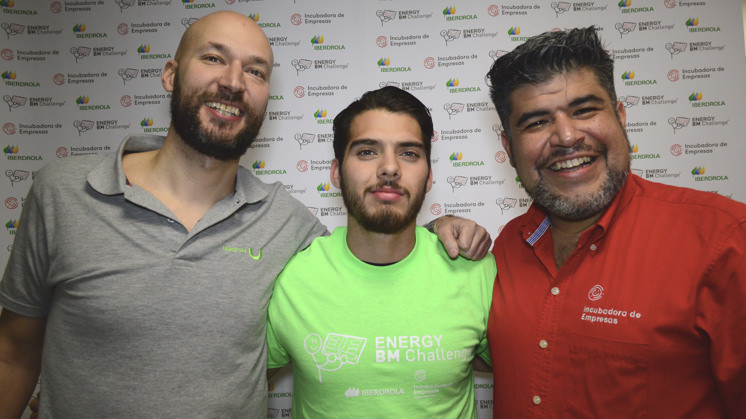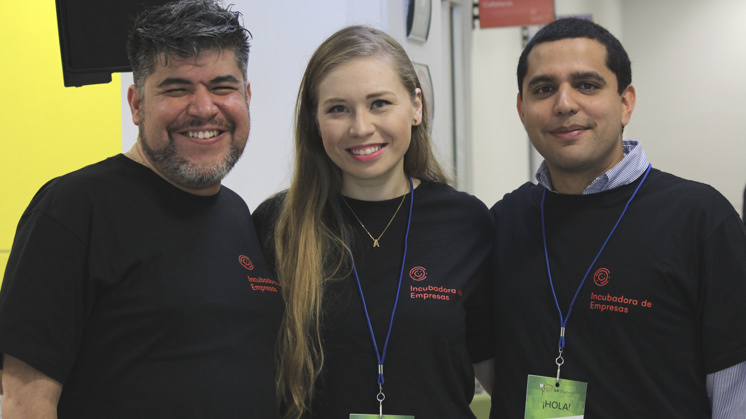Interview with Víctor Melgarejo
Do not give up, this is the main characteristic of an entrepreneur
March 2019. Reading time: 4 minutes
It is as important to have a good idea as it is to find the right mentors and be able to listen to them. Víctor Melgarejo is a mentor at the Monterrey Institute of Technology and, because of his long experience, he has a perfect understanding of the characteristics that an entrepreneur needs to have.


Entrepreneurship is not an exact science. No one can guarantee that a company that is just starting out will succeed but it is very important to listen to the people who know. Víctor Melgarejo, director of the Monterrey Institute of Technology company incubator,
is one of these people and, when asked about the characteristics that an entrepreneur needs to have, he is very clear. “Those who reach their goal do so because they organise their resources, administer their contacts and show resilience under any circumstances. An entrepreneur never gives up!”
A very fine line separates success from failure, both in life and in entrepreneurship, and this is why Víctor deals with both. “I think that success and failure are two faces of the same coin. To be successful you have to withstand a number of failures. Very often entrepreneurs are more afraid of success than failure because they do not know how they are going to react when it comes.”
"A winning team needs to be multidisciplinary. That is why it is more important to have the necessary talent than friends in the group"
Because of his position, Víctor perfectly understands the realities of the Mexican entrepreneurial ecosystem and, although he recognises the importance of institutional support, he does not consider it to be essential. “Institutions are a focal point of support for entrepreneurship, but the most important thing is the desire of entrepreneurs to make a change and get their ideas going.”
If you are thinking of becoming an entrepreneur, Víctor can tell you what your first steps should be. “Develop an idea and validate it, form a team and look for mentoring.” Successes do not come alone; they are the result of teamwork. But not any kind of teamwork. “A winning team needs to be multidisciplinary. That is why it is more important to have the necessary talent than friends in the group.”
What is the role of the Monterrey Institute's company incubator?
We develop and encourage the entrepreneurial spirit of people who want to change their surroundings through activities related to entrepreneurship. We support them right from the idea to entry into new markets and, to do that, we have platforms for triggering entrepreneurship in any of its forms.
Is institutional support essential for creating an entrepreneurial ecosystem in a country?
Not necessarily. Institutions are a focal point of support for entrepreneurship, but the most important thing is the desire of entrepreneurs to make a change and get their ideas going.
What are the challenges that face entrepreneurs today?
Entrepreneurs face the challenge of having a lot of competition. Only true entrepreneurs reach their goal and they do so because they organise their resources, administer their contacts and show resilience under any circumstances. An entrepreneur never gives up!
To start being an entrepreneur, is it enough to have a good idea? What else is needed?
More than a good idea, one needs entrepreneurial characteristics: to be empowered, administer resources, be resilient, look for opportunities and, above all, have the right mentors and know how to listen to them. With these characteristics, entrepreneurs can achieve their objectives and change the world.
Is finding backing from a big company a good alternative for start-ups? What are the advantages of this type of collaboration?
Collaborating with big companies always helps because they tend to be connected to the value chain and, for entrepreneurs, it can sometimes be difficult to enter it or understand the complete process. The support of these companies offers both better conditions for suppliers and better vertical integration into the value chain. This, in turn, makes the growth process easier by creating more jobs and more innovation.
Entrepreneurship is like a marathon, but what should an entrepreneur's first steps be?
To develop an idea and validate it, form a team and look for mentoring.
What are the most common mistakes made when starting out?
One of the biggest mistakes when starting out is to be arrogant. It is very important to listen to the advice of mentors, who can be relatives, friends, teachers or experts from entrepreneurial platforms. Another mistake is the lack of planning. Normally, numerous companies develop their projects without a plan and therefore they do not achieve their objectives. This is one of the reasons why many companies close after the first two years.
What is an entrepreneurial professional like? Given your experience, would you risk listing a series of common characteristics?
What a difficult question to answer! I would say that one of the most important characteristics is empathy. Entrepreneurs are not as resilient as we think and it is important to give them a pat on the back so that the team can move forward. It is also important to understand the situation in the entrepreneurial ecosystem so as to seek opportunities and to be humble in order to convey closeness. Personally, I have always believed that in addition to being a good person, a good coach must have three characteristics: to be empathetic, consistent and appreciative.
The difference between success and failure is very often minimal. How important is it to know how to cope with different circumstances?
I think that success and failure are two sides of the same coin and that is why we have to deal with both. To be successful you have to withstand a number of failures. It is also important to be prepared for success. Entrepreneurs are more afraid of success than failure because they often do not know how they are going to react if things go well. That is why it is vital to have a plan and a structure. That is the only way we can stop being afraid of our customers saying yes.
What characteristics should the team that surrounds the entrepreneur have?
It is important for them to be resilient and optimistic — to a certain point — in order to see the reality of the situation. It should also be a multidisciplinary team with different skills: administration, technology, design. Good communication and coordination are also important. A winning team needs to be multidisciplinary. That is why it is more important to have the necessary talent than friends in the group.
You have undertaken studies on social media and storytelling. What value does communication have when promoting these projects?
Communication is very important during the entrepreneurial process but these days it is necessary to be careful. The social media, for example, publish incorrect or biased information. Our communication with the market needs to be honest and objective. We must promote a knowledge of our products and the value proposal that we offer. That is the intangible for which they are paying.
You also have undertaken studies on design thinking. How can this discipline help an entrepreneur?
Design thinking is a very interesting tool for business because it allows people who are a little rigid to think more innovatively and less linearly. This helps to develop products that offer different solutions to our market.
What advice would you give to someone who has an idea and wants to make it into a business?
That they should go to the industry, ask the experts and look for entrepreneurial platforms, because we are there to help. There are many platforms around the world, and I am sure that they are always going to find one that can help them.




